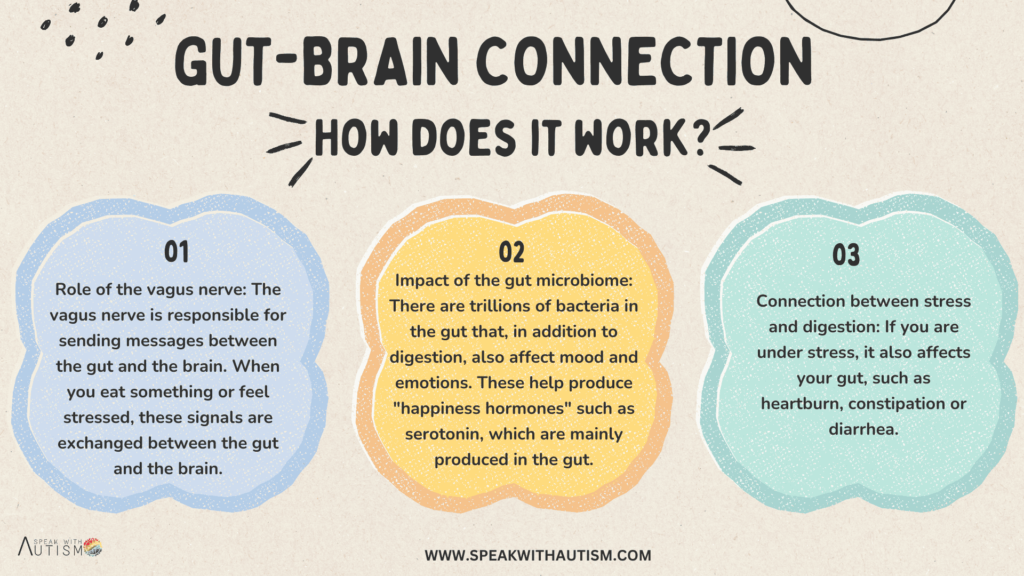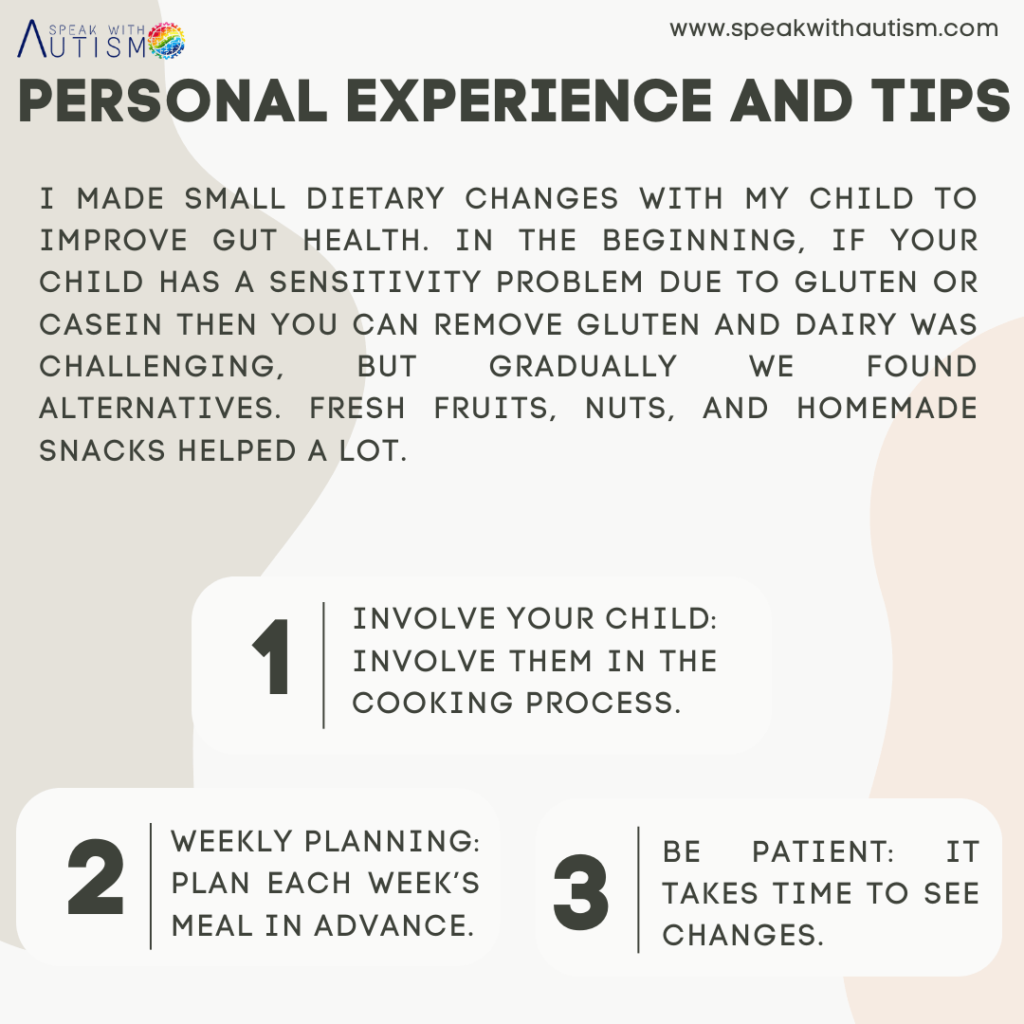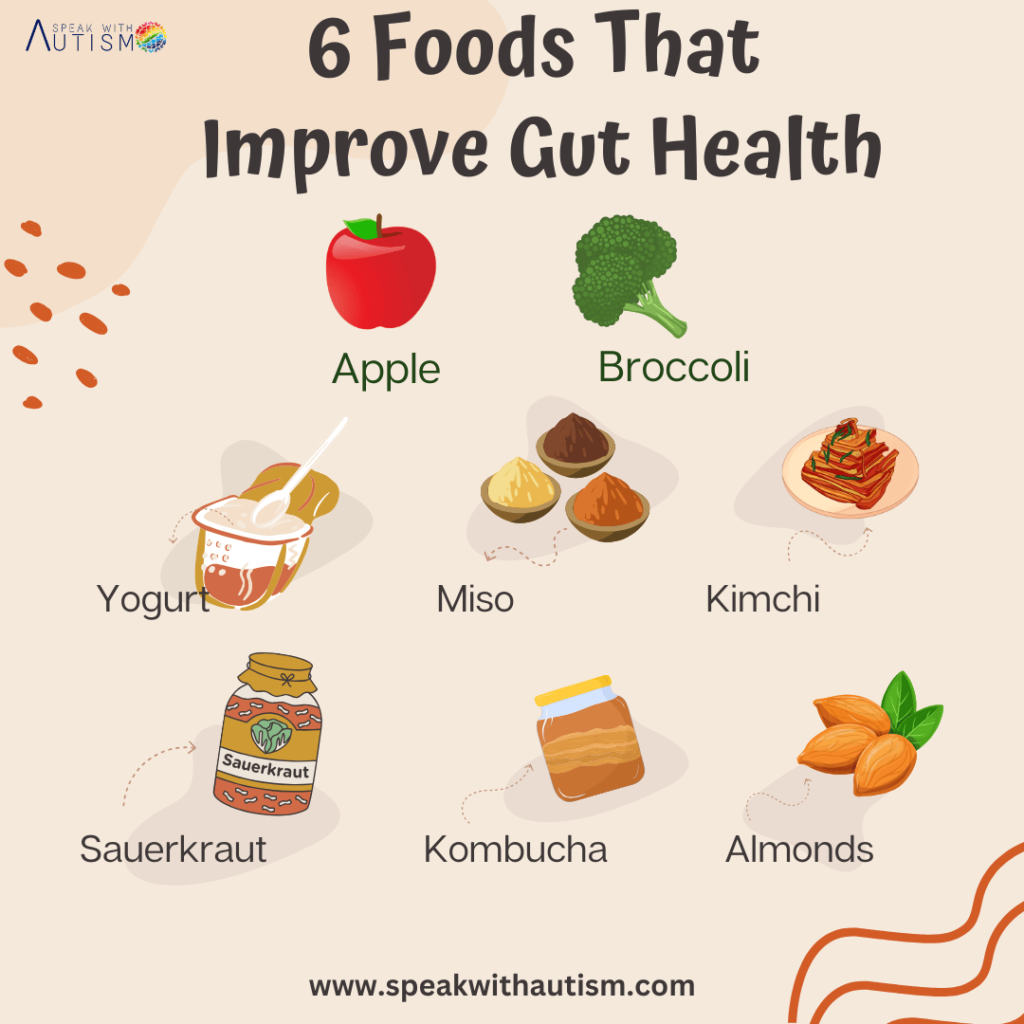In this article, we will try to understand the Gut-Brain Connection with Autism and learn how diet and lifestyle can make a positive difference. Health and nutrition are of extraordinary importance for children living with autism and their families.
Table of Contents
Gut Health and Its Importance
The gut, often called our “second brain,” is extremely important for our mental and physical health. The gut microbiota, which is the balance of good and bad bacteria living in the gut, can directly impact our brain function.
A very popular research is being talked about in which gut health is being linked to autism. This research is being done all over the world, and in this, an attempt is being made to find out whether poor gut health can cause more symptoms of autism in our children. If this happens, is there any way to reduce or completely eliminate these symptoms?
What is the gut?
The gut is called our entire digestive system, which includes the liver, pancreas, small intestine, large intestine, etc. If the health of our gut is poor, then it directly affects our brain.
Understand in simple language
When we have acidity or gas in the stomach, then often we get headaches. At such times, we do not feel like talking to anyone, we become irritable, and try to avoid social activities. Our behavior starts to look like a sick person.
Similarly, the microbes (tiny bacteria) present in gut health are being linked to autism. These microbes break down our food and create free radicals. These free radicals act as neurotransmitters, which transmit messages to our brain.
How do neurotransmitters work?
Gut microbiota produces neurotransmitters such as serotonin and dopamine, which regulate our mood and behavior. For example, when you smell a good smell, your brain interprets that signal and makes you feel happy. Similarly, whatever we hear, smell, or feel, has a direct impact on the signals of our brain, and we react based on that.
This research focuses on how this relationship between gut health and autism works and what could be the ways to improve it.
The Gut-Brain Connection
The gut-brain connection means that there is a direct link between your digestive system and your brain. This connection works through the enteric nervous system (the gut’s own nervous system) and the central nervous system (the brain and spinal cord). The connection between the gut and the brain is through the vagus nerve. When the gut is healthy, the brain functions better.

Autism and gut microbiota connection
Some of the problems associated with autism spectrum disorder (ASD), such as digestive problems and weakened immune system, may be related to gut health. Research has shown that children with autism are more likely to have an imbalance of gut microbiota than normal children.
- Digestive problems: Constipation, diarrhea, and indigestion are common.
- Sensory behavior: An imbalance in the gut can increase sensitive behavior in children.
My own experience with my autistic son
Experience and solution of gastric problems with my son
This experience I have shared with my son may help other parents to cure their children’s gastric problems.
1. Connection between Autism and Gut Health
- The microbes that break down food in children with autism may be different from those in normal children.
- Either those microbes are not present or do not work properly, leading to digestive problems.
2. Diarrhea problem
- My son had diarrhea since childhood.
- It would get cured sometimes and then come back.
- The doctor said that it is normal to go to the washroom 5-6 times, but my son’s diarrhea used to affect his behavior a lot.
- He used to become irritable, too much crying, and hyperactive during diarrhea.
- When he used to go to the toilet only 1-2 times a day, he used to be calm and relaxed.
3. Diet Changes to Improve Gut Health
- I changed my son’s diet considering that he is suffering from autism and behavioral issues.
- Since he is lactose intolerant, I stopped giving him milk and outside food.
- He loved biscuits, so I learned the recipe from YouTube and made biscuits at home.
4. Diet Plan
- Morning: Beetroot juice or Beetroot Paratha.
- Three times a week: Green vegetables and broccoli.
- Probiotic foods: Pickles and kimchi.
- He is not a picky eater, but sometimes he used to be a little fussy after smelling the food.
5. Gastric Problems and Toilet Training
- He was not able to be toilet trained due to diarrhea and stomach pain.
- I tried to teach him in many ways and used to accompany him to the toilet 10-12 times.
- His gut health improved with the right diet.
- As soon as the diarrhea stopped, he learned to go to the toilet on his own.
6. Today’s experience
- Now he is completely fine.
- I am not following any different diet.
- He does not need to be given beetroot and other things now.
- He is completely out of gastric problems.
7. Tips for other parents

- Pay attention to the gut health of children.
- If your child has diarrhea, constipation, or stomach ache, then change their diet.
- With the right diet and regularity, children’s behavior and health can improve.
Ways to improve gut health through diet
Managing the diet properly can improve gut and brain health. Adopting the following dietary measures can make positive changes:

Gluten and casein-free diet
- Gluten: Found in grains such as wheat, barley, and rye.
- Casein: A protein found in dairy products.
Some research suggests that problems digesting these proteins may impair gut health and increase symptoms associated with autism.
Probiotics and prebiotics
- Probiotics: Good bacteria, such as yogurt, kimchi, and pickles.
- Prebiotics: Fiber-rich foods, such as bananas, garlic, and onions.
These promote good bacteria in the gut and strengthen the digestive system.
Omega-3 fatty acids
Omega-3 fatty acids, found in fish, chia seeds, and flaxseed, improve brain health and help produce neurotransmitters.
Avoid processed foods
Processed and sugary foods can worsen gut health. Include fresh fruits, vegetables, and whole grains instead.
Conclusion
Taking care of gut health can be an effective way to manage symptoms associated with autism. With balanced dietary changes and attention to gut microbiota, you can improve your child’s quality of life.
Remember, every child is different. So, consult a doctor or dietitian before starting any diet or treatment.
Frequently Asked Questions
What is the link between gut health and autism?
Gut health link to autism may be that the microbes that break down food in normal children may be different in children with autism. Either those microbes are not present, or if they are, they don’t work properly. This leads to problems digesting food.
Most children are either dehydrated or have constipation or diarrhea.
What should be done to improve gut health?
Keep a healthy diet: Include probiotic foods like yogurt, kimchi, bananas, kombucha, pickles, and nuts in your diet. Adding fiber-rich foods such as salads also strengthens gut health.
Reduce stress: Practices like meditation, yoga, and regular exercise not only improve gut health but also help maintain balance between the gut and brain.
Stay hydrated: Drinking plenty of water supports digestion and boosts overall gut health.
This gut-brain connection plays a vital role not just in digestion but also in mental health and overall well-being.
